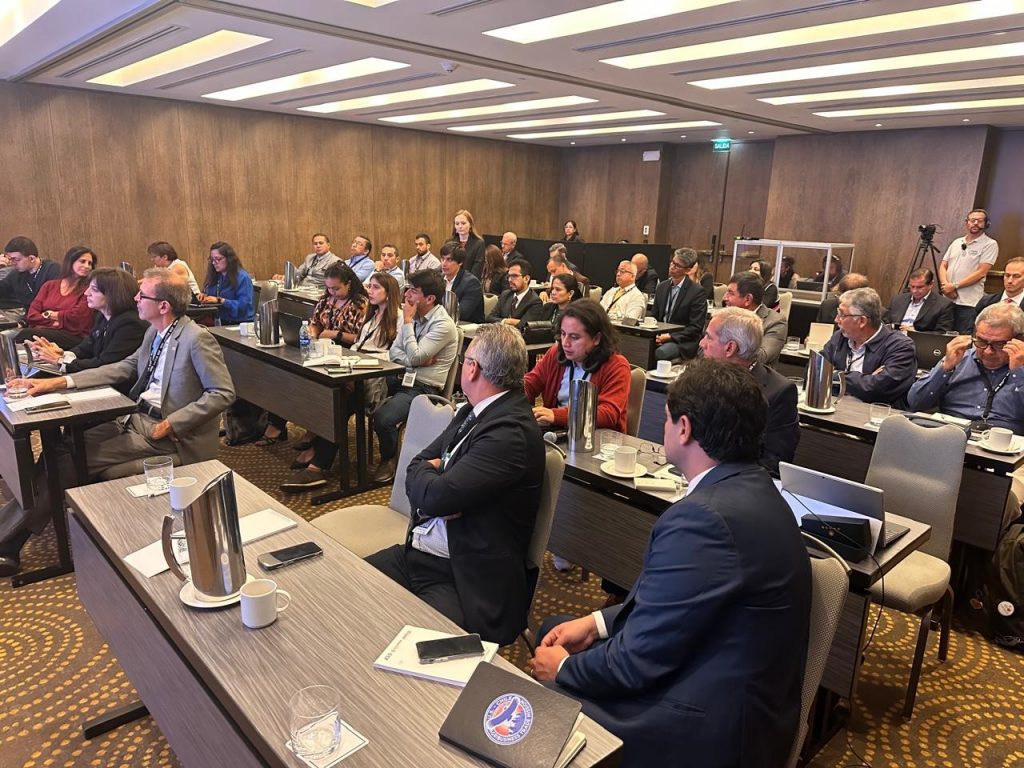As many countries across Latin America (LTA) seek to develop energy transition policies, biofuels have proven to be the most reliable alternative for those transition efforts. The countries in the region have expressed interest in developing ethanol blending programs yet are faced with many uncertainties due to the lack of education on the topic.
The U.S. Grains Council (USGC) along with the Latin American Energy Organization (OLADE) and the Inter-American Institute for Cooperation on Agriculture (IICA) have partnered to train government officials and industry and refinery representatives on the benefits of ethanol and its use in gasoline blending.
The training program began in February 2024 with the launch of a virtual course in which more than 380 people from 13 Latin American countries registered. The course content included six modules on various topics, including biofuels and climate change, global ethanol markets and sustainable aviation fuels (SAF).
“The last two weeks have been very fruitful, as the program has held face-to-face workshops in Costa Rica, Guatemala, Mexico and more recently Peru. More than 160 participants from eight countries have gained a greater understanding of the topics covered in the virtual course and have learned about international experiences with ethanol blends from the United States, Argentina, Bolivia and Colombia, among other countries,” said Juan Diaz, USGC LTA regional ethanol consultant.
The latest workshop in Lima, Peru, kicked off with a memorandum of understanding (MOU) signing between the Council and the Peruvian Hydrocarbons Society. The purpose of this MOU is to strengthen cooperation with a key Peruvian stakeholder and develop joint activities and technical studies that will allow Peru to continue to make progress and increase the current level of ethanol blending with gasoline to over 7.8%.
The remainder of the workshop covered topics that complemented the modules each participant completed online beforehand. The topics included guidelines for formulating public policies on biofuels; infrastructure associated with the development of liquid biofuels; global trends of biofuels and the role they play in the energy transition; and the impact of liquid biofuels on agribusiness.
“The success of this hybrid course and the in-person workshops shows the region’s interest in further advancing and deepening the use of ethanol as an effective formula for decarbonizing the transportation sector, as well as exploring new uses in PBS and bioplastics. With this program, we are strengthening a network of people and institutions committed to developing biofuels in Latin America, recognizing their positive economic, technical and environmental impacts,” said Marri Tejada, USGC LTA regional director.
About The U.S. Grains Council
The U.S. Grains Council develops export markets for U.S. barley, corn, sorghum and related products including distiller’s dried grains with solubles (DDGS) and ethanol. With full-time presence in 28 locations, the Council operates programs in more than 50 countries and the European Union. The Council believes exports are vital to global economic development and to U.S. agriculture’s profitability. Detailed information about the Council and its programs is online at www.grains.org.

